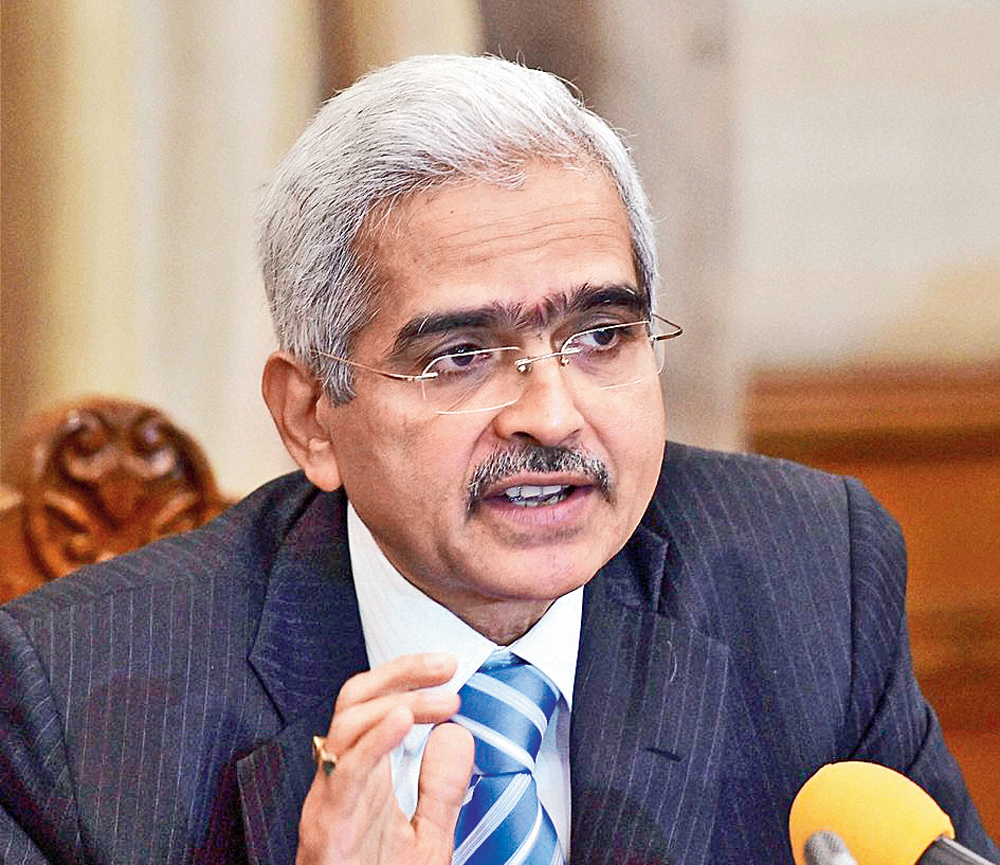Days ahead of the budget, RBI governor Shaktikanta Das on Friday said monetary policy had its limitation and structural reforms along with fiscal measures needed to be taken to push growth.
Finance minister Nirmal Sitharaman will present her second budget on February 1, and Das’s comments at a lecture in St Stephen’s College in New Delhi seem to indicate the government should do more for the economy to ramp up growth — which is forecast to grow at a 11-year low of 5 per cent this fiscal.
“Monetary policy, however, has its own limits. Structural reforms and fiscal measures may have to be continued and further activated to provide a durable push to demand and boost growth,” Das said at St Stephens.
The central bank had chopped off 135 basis points in all from the repo rate throughout last year, while the government had announced various measures, including a cut in corporate tax rate — but with limited impact on growth.
Firm inflation led to the monetary policy committee (MPC) of the RBI halting its rate cutting cycle and going for a status-quo in December. The interest rate setting panel will meet next month, and the expectations are that the repo rate will be on hold, with retail inflation rising to 7.5 per cent in December.
Amid such trends, there are expectations that Sitharaman could reduce personal income tax to boost consumption. However, economists are divided on whether the move will have a positive impact.
Das said there were certain potential growth drivers which through backward and forward linkages could give a significant push to growth.
Some of these areas include prioritising food processing, tourism, e-commerce, start-ups and efforts to become a part of the global value chain.
Das said the government was focusing on infrastructure spending which will augment growth potential of the economy.
However, states should also play a key role by enhancing capital expenditure, which has a high multiplier effect.
Speaking about the evolution of monetary policy in India, Das said from 2016 the RBI has adopted a flexible inflation targeting (FIT) framework, under which the RBI gives importance to price stability, while focusing on growth when inflation is under control. The RBI has set a target of 4 per cent for consumer price inflation (CPI), with a tolerance band of plus and minus 2 per cent. He said the relative emphasis on inflation and growth depends on the macroeconomic scenario, inflation and growth outlook, and signals emerging from incoming data.
“Since then (2016) the RBI has been conducting monetary policy in a forward-looking manner and effectively communicating its decisions to maintain inflation around its target and thereby to support growth,” he said.
Das said the RBI was also fine-tuning its operating procedures of monetary policy for effective policy transmission across the financial markets and to the real economy.
He said the RBI had also given due importance to financial stability. The regulation and supervision of banks and non-bank financial intermediaries has rested with the central bank, and it has kept pace with the prescribed global norms over time.
Admitting that correctly assessing the current economic situation and thus formulating the necessary monetary policy is a challenge , he said this is why monetary policy around the world was in a state of flux today. The RBI was forced to slash its GDP forecast for 2019-20 by a whopping 290 bps to a low 5 per cent between February and December.
“One of the major challenges for central banks is the assessment of the current economic situation. The precise estimation of key parameters such as potential output and output gaps on a real time basis is a challenging task, although they are crucial for the conduct of monetary policy,” the RBI governor said.











